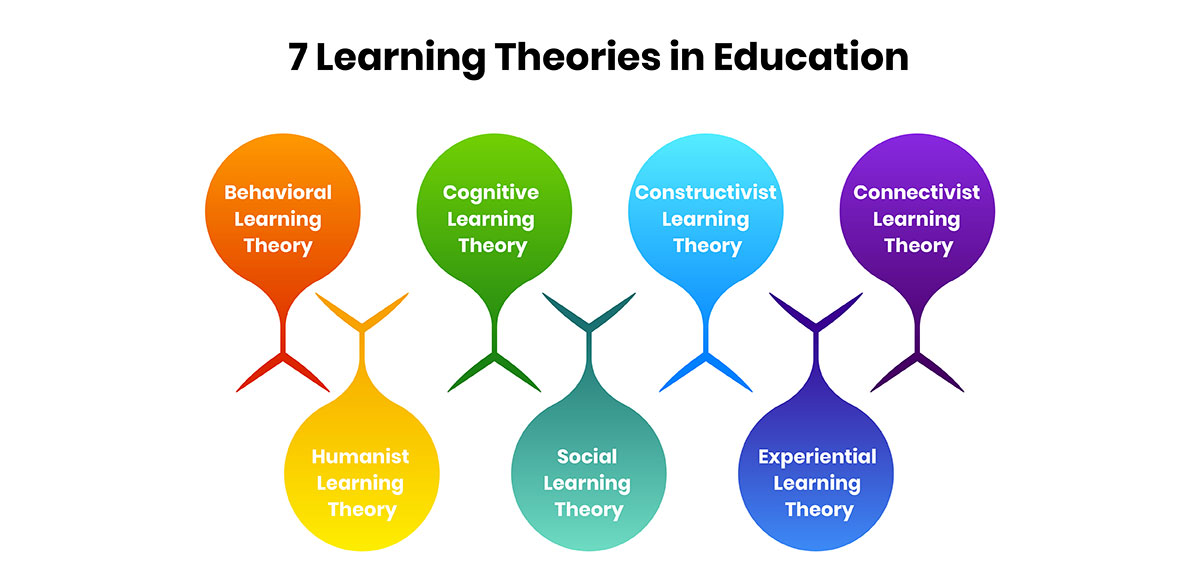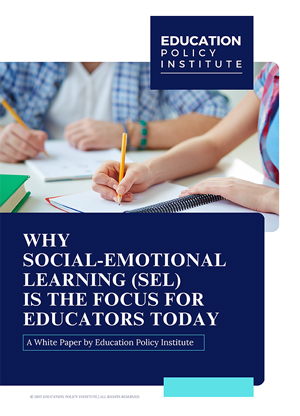Learning theories in education provide a foundation for comprehending how students learn. Theories like Behaviorism, Cognitivism, and Constructivism help educators develop effective teaching methods suited to the diverse needs of learners. Understanding these theories allows teachers to design lessons that accommodate various learning styles, ultimately enhancing the educational experience.
Each student learns uniquely, influenced by brain function and personal experiences. Psychologists have extensively researched to uncover the best ways different students learn. This knowledge is vital for teachers, who must address diverse needs daily. By grounding their methods in established learning theories, educators can employ a range of techniques to support all learners effectively, making education more inclusive and dynamic.
Decoding Learning Theories
Learning theories are conceptual frameworks that explain how students acquire, process, and retain knowledge. These theories offer valuable insights into the mechanisms of learning, guiding educators in designing effective teaching methods and curricula. By understanding and applying these theories, teachers can adapt their instruction to meet the diverse needs and learning styles of their students, ultimately fostering a more inclusive and effective educational environment.
Theories of learning have evolved significantly over time, beginning with early philosophical inquiries by thinkers like Plato and Descartes. The formal study of learning, however, began in earnest in the 19th century with the advent of psychological research. Pioneers in psychology conducted experiments to understand how individuals learn and remember information, leading to the development of various learning theories. From the behaviorist approaches of the early 20th century, which focused on observable behaviors and external stimuli, to the cognitive theories that emphasize mental processes and the construction of knowledge, each theory has contributed to a deeper understanding of the learning process.
Today, numerous learning theories continue to shape educational practices. For instance, Albert Bandura's Social Learning Theory highlights the importance of observation and imitation in learning, while more contemporary theories like Connectivism address the impact of digital technology on knowledge acquisition. Despite their differences, all learning theories share a common goal: to explain the learning process and help educators implement effective teaching strategies. As education continues to evolve, these theories provide a foundation for creating dynamic and adaptive learning environments that cater to the varied needs of students.
Are Theories of Learning Necessary?
The debate over the necessity of learning theories continues to be relevant in educational research. On one hand, learning theories provide crucial insights and models that enable educators and researchers to grasp the mechanisms behind how individuals learn, assimilate information, and store it for future use. They provide structured approaches to analyzing complex learning processes and can guide the development of instructional strategies and educational interventions.
However, some researchers argue that an overemphasis on theoretical models can detract from practical applications. For instance, applying learning theories directly in classroom settings may sometimes lead to rigid adherence to theoretical principles rather than adapting strategies based on empirical results and real-world effectiveness. The focus on theories might overshadow the importance of testing and refining methods through direct observation and experimentation, which can lead to more immediate and observable improvements in teaching and learning practices.
Ultimately, while learning theories offer essential insights and guide educational practices, they should be complemented by empirical research and practical experimentation. A balanced approach, integrating theoretical understanding with evidence-based practices, allows for more effective and adaptive teaching methods that can better address the diverse needs of learners and improve educational outcomes.
An In-Depth Look at Seven Learning Theories in Education
As learning theories provide essential frameworks that guide how educators understand and facilitate the learning process, delve into the core principles of seven foundational learning theories shaping modern educational practices.

-
1. Behavioral Learning Theory
Behaviorism centers on the concept that knowledge exists outside the learner and must be transmitted to them. In this framework, learners are seen as blank slates who acquire knowledge through conditioning. Learning is measured by observable changes in behavior, driven by stimuli and responses. Pioneers such as John B. Watson, Ivan Pavlov, and B.F. Skinner emphasized that behavior can be shaped through reinforcement and repetition. Positive reinforcement, such as rewards or praise, encourages desired behaviors, while negative reinforcement discourages unwanted behaviors. In educational settings, behaviorism is often used in classroom management and the establishment of routines, reinforcing behaviors that facilitate learning. -
2. Cognitive Learning Theory
Contrasting with behaviorism, cognitivism focuses on the internal processes involved in learning. This theory suggests that learners actively process information, integrating new knowledge with existing cognitive structures. Jean Piaget, a prominent figure in cognitive psychology, proposed that learning involves reorganizing information and adapting old knowledge to accommodate new insights. Cognitive theories emphasize understanding how learners think, solve problems, and remember information. Techniques such as linking new concepts to real-world examples, encouraging discussions, and using problem-solving activities are common applications of cognitivism in education. This approach helps students develop critical thinking skills and understand their own learning processes. -
3. Constructivist Learning Theory
Constructivism posits that learners construct their own understanding and knowledge of the world through experiences and reflection. This theory highlights the importance of prior knowledge and personal experiences in the learning process. Jerome Bruner’s spiral curriculum exemplifies constructivism, where learners revisit topics with increasing complexity over time. In a constructivist classroom, teachers act as guides, facilitating activities that encourage students to explore, ask questions, and solve problems. This approach builds active learning and critical thinking, enabling students to build a deep, personalized understanding of subjects. Methods such as project-based learning, research activities, and collaborative projects are typical of constructivist teaching. -
4. Connectivist Learning Theory
Connectivism is a learning theory tailored to the digital age, emphasizing the role of technology and networks in the learning process. It argues that learning occurs through connections within a network, whether among people, organizations, or information sources. Knowledge is distributed across a network of connections, and learning involves navigating and growing these connections. Educators leveraging connectivism encourage students to use digital tools, engage in online communities, and develop skills for finding and evaluating information. This theory underscores the importance of being able to access and use resources effectively, developing skills that are essential in a technologically advanced world. -
5. Humanist Learning Theory
Humanist learning theory emphasizes personal growth, self-actualization, and the development of the whole person. Originating from the work of Carl Rogers and Abraham Maslow, humanism focuses on the individual learner’s needs, experiences, and emotions. It suggests that learning is most effective when it is self-directed and meets the learner’s intrinsic motivations. In the classroom, humanistic educators create supportive environments that respect students' individuality and encourage self-reflection and personal goal-setting. Techniques such as offering choices in learning activities, cultivating positive teacher-student relationships, and promoting a safe, inclusive classroom environment are central to humanistic education. -
6. Social Learning Theory
Social Learning Theory, developed by Albert Bandura, highlights the importance of observing and imitating others in the learning process. According to this theory, learning occurs through observation, imitation, and modeling. Bandura’s famous Bobo doll experiment demonstrated that children learn behaviors by watching adults and peers. This theory incorporates the concepts of attention, retention, reproduction, and motivation. In educational settings, social learning can be facilitated through peer-to-peer interactions, group work, and collaborative activities. By observing their peers and receiving feedback, students can learn new skills and behaviors, making social learning a powerful tool in education. -
7. Experiential Learning Theory
Experiential Learning Theory, proposed by David Kolb, emphasizes learning through experience. Kolb identified a four-stage learning cycle: concrete experience, reflective observation, abstract conceptualization, and active experimentation. This cycle suggests that effective learning occurs when students engage in an experience, reflect on it, form concepts based on their reflections, and apply these concepts in new situations. ELT is particularly effective in hands-on learning environments where students can actively participate and apply their knowledge. Examples include lab experiments, field trips, and interactive simulations. This approach not only enhances understanding but also helps students develop practical skills and connect theory with practice.
Integrating Learning Theories into Teaching Methods
Applying learning theories in education involves integrating these frameworks into practical teaching strategies to enhance student learning. By understanding and implementing these theories, educators can create more effective and responsive teaching methods. For instance, behaviorist principles can be utilized through positive reinforcement and behavioral management techniques, while cognitivist approaches might involve fostering class discussions and linking concepts. Humanistic methods emphasize giving students control over their learning pace and providing motivational support, whereas connectivism highlights the importance of incorporating educational technology and teaching research skills.
Understanding learning theories not only aids in developing specific teaching strategies but also helps educators connect with diverse student needs. Teachers equipped with knowledge of various learning theories can tailor their instruction to address different learning styles and preferences, ensuring a more inclusive educational environment. This adaptability is crucial for meeting the varied needs of students and enhancing their overall learning experience.
The application of learning theories continues to evolve as education progresses. While historical theories have laid the foundation for modern practices, contemporary insights and technological advancements shape current approaches. Teachers who reflect on their own educational experiences and stay updated with evolving theories can better understand their impact on student learning and create more effective classroom environments. This ongoing adaptation ensures that teaching methods remain relevant and effective in addressing the complexities of today’s educational landscape.
Conclusion
Understanding and applying the diverse range of learning theories can significantly enhance educational practices. Each theory—whether focusing on behavioral conditioning, cognitive processes, personal construction of knowledge, or the influence of technology—offers unique insights into how students learn and interact with information. By integrating principles from these theories into teaching strategies, educators can create more effective, responsive, and inclusive learning environments. Balancing theoretical knowledge with practical application allows teachers to address the varied needs of their students, ultimately fostering a more dynamic and effective educational experience. As the landscape of education continues to evolve, staying informed about these theories ensures that teaching practices remain relevant and impactful in helping students achieve their full potential.
Latest
Trends blogs
- From Vision to Impact: Closing the Gender Gap in STEM Education
- Automation, Artificial Intelligence, and the Future of Human-Centered Education
- Mid-Career Education in a Changing Labor Market
- The Next Phase of STEM Education: The Role of Artificial Intelligence in Classroom Curricula
Focus blogs
- Research-Driven Education: Strengthening Strategies, Policies, and Classroom Practice
- Professional Certifications for Career Growth: What Students and Young Professionals Need to Know
- Building a High-Impact Center of Excellence: What You Need to Know
- Beyond Graduation: The Importance of Lifelong Learning in Higher Education





